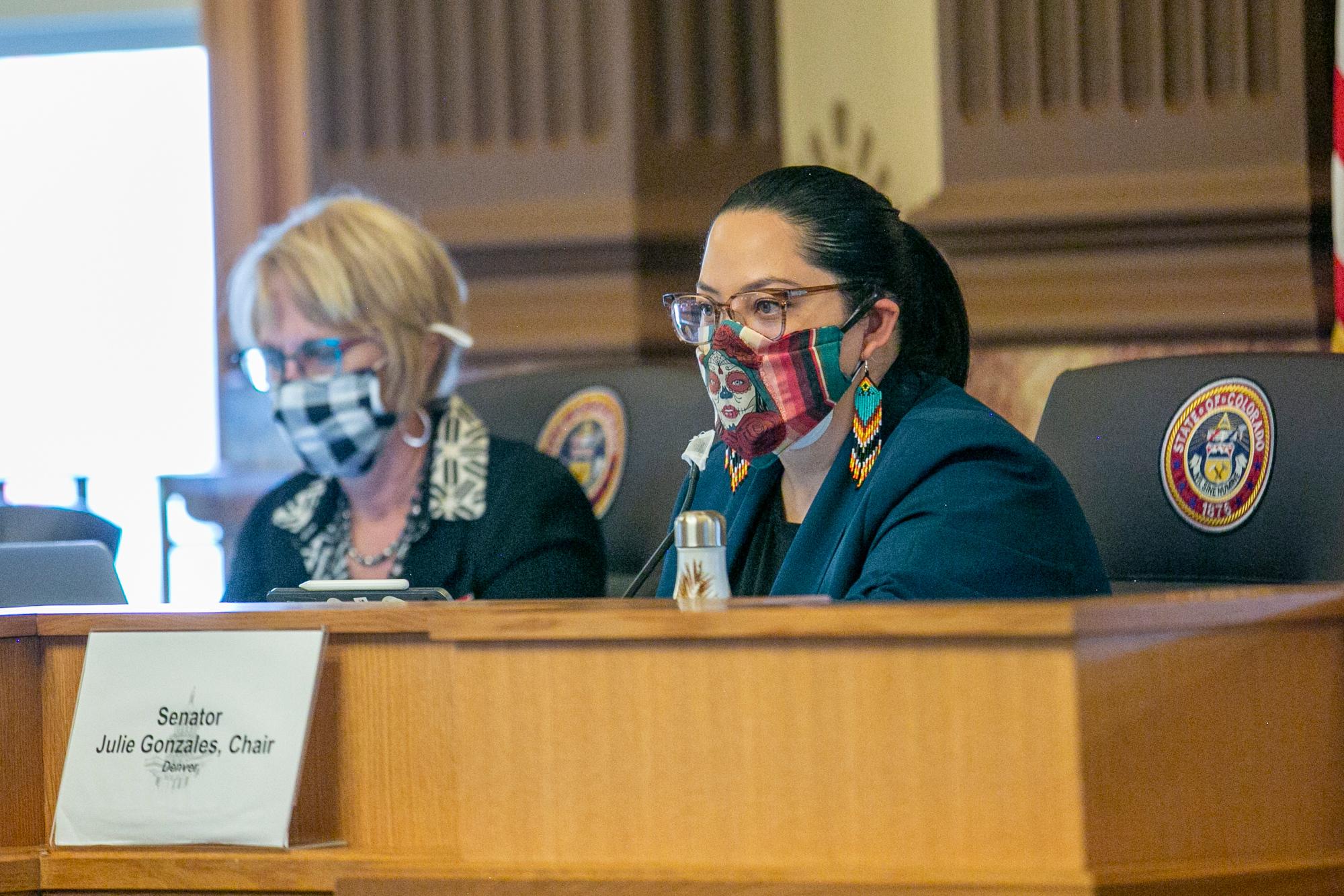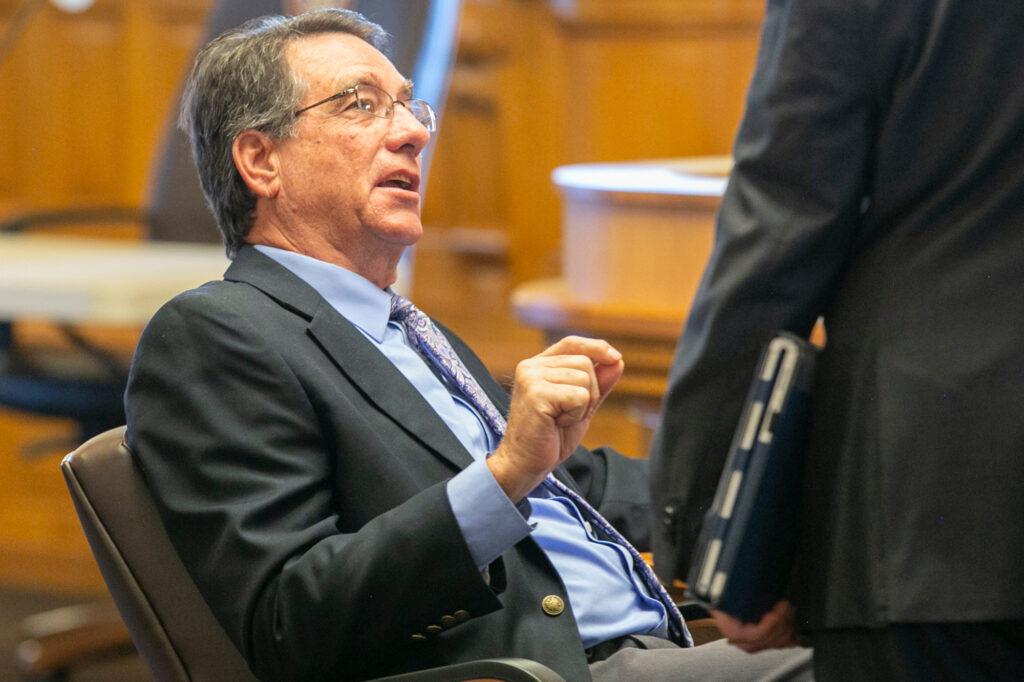
The two and a half days state lawmakers spent together this week was just long enough to pass a coronavirus relief package. It was also long enough to see clearly how deeply divided some legislators are over coronavirus safety, and what a thorny path awaits them when they come back in January.
It was a stripped down session, but still required dozens of people to come to the Capitol each day. Democratic state Sen. Julie Gonzales of Denver says she and her husband assumed she would be exposed to the coronavirus.
“We, basically are treating these days of this extraordinary session as a contact event,” said Gonzales. “He packed up and went to his mom's house and he took the dog and it's just been me at home.”
What will she and her husband do during the regular session, which lasts four months?
“We're going to have a lot of conversations about it as a family. I don't know.”
Nine months into the pandemic, divides persist over everything from the effectiveness of masks and tests to the deadliness of the disease.
“I think people are dug in. I think, unfortunately, it's getting politicized in some of our communities around the state also,” said Democratic Senate Majority Leader Steve Fenberg. “It's a little tricky because obviously this is a building that is immersed in politics inherently.”

The pandemic can make the high-pressure environment at the capitol even more tense. All lawmakers were offered rapid COVID-19 tests before coming to work each day, but on the first day of the session, only six Republicans took them.
“I have not been around anyone with a positive test. I have witnessed false positives,” said Republican Sen. Don Coram of Montrose, who chose not to get tested. Coram, who does wear a mask, said he also doesn’t like that lawmakers had a special testing site when community testing sites are experiencing long waits.
Legislative rules recommend, but do not require, lawmakers to wear masks in the building. “We also can't compel other members to do something,” said Republican House Minority Leader Hugh McKean. “My ethic has been all along that if I need to wear a face mask and take a rapid test so that someone else in the chamber feels more comfortable to come and represent their constituents, I will do that."
But some Republicans chose not to wear masks at their desks, and at least one, Republican Rep. Mark Baisley of Roxborough Park, didn’t wear a mask anywhere inside the building, saying it impedes his breathing and he doesn’t see the medical reasons as compelling.
“I do have a large suspicion that those in the government who are of the left persuasion, meaning they love to micromanage our behavior, that they leverage this, to take advantage of this fear to micromanage our behavior,” Baisley said.
Democrats would dispute that description. They’ve emphasized the need to follow public health guidelines, but the legislature’s Democratic leaders did not take official action against Republican lawmakers who didn’t follow them. It was a different story for non-lawmakers. When incoming Rep. Ron Hanks came on the House floor without a mask, House sergeants asked him to wear one, leading to an argument that became loud. House Speaker KC Becker then asked Hanks to leave the floor.
The legislature’s only serving medical doctor, Democratic Representative Yadira Caraveo, said she was disappointed that not all Republicans wore masks.
“Even at our peak, people are still not taking it seriously and in a very, very public manner. Still being partisan, about something that should be scientific fact,” she said. “And I'm sure that that's going to happen around the vaccines as well. I think we're going to be living with coronavirus for a very long time, unfortunately, because of this division.”
Caraveo is already looking ahead with concern to the regular session, which is set to convene on January 13. With COVID vaccines still many months from being widely available, she doesn’t think it’s wise for Colorado’s lawmakers to meet for an extended period.
The regular session will mean a lot more people than the special session. The focused nature of the special session, and widespread agreement on its bills, didn’t give lobbyists much to do, so most of them stayed home. That’s unlikely to be the case in January, when lawmakers will be free to introduce bills on any topic that concerns them.
“I think given the legislation that we know is coming, a lot of us will have to be in the building,” said longtime lobbyist Jason Hopfer.
Hopfer is worried about the health risks next month; public health officials say there could be a new wave of cases after the holidays. But he also said there’s no way for non-lawmakers to be fully involved in the legislative process remotely.
“I think it is going to be a major challenge to make sure that we continue to have transparency in the system,” he said.
Because the governor has declared a public health emergency, legislative leaders do have some options. They could convene the session and then pause it until later in the year.
“It's not the plan, but we are definitely, putting in place contingencies in case there is an outbreak, or if the numbers are so bad or frankly, if the hospital utilization rates are so bad,” Fenberg said.
If leadership does go down that road, they’re likely to meet with opposition.
“I can’t wait to get back and start doing the work of the people. I don't want to be here in June [or] July, that's for damn sure,” said Rep. Larry Liston, who noted that between the last legislative session and the pandemic, he hasn’t been more than 100 miles from home since last December.








